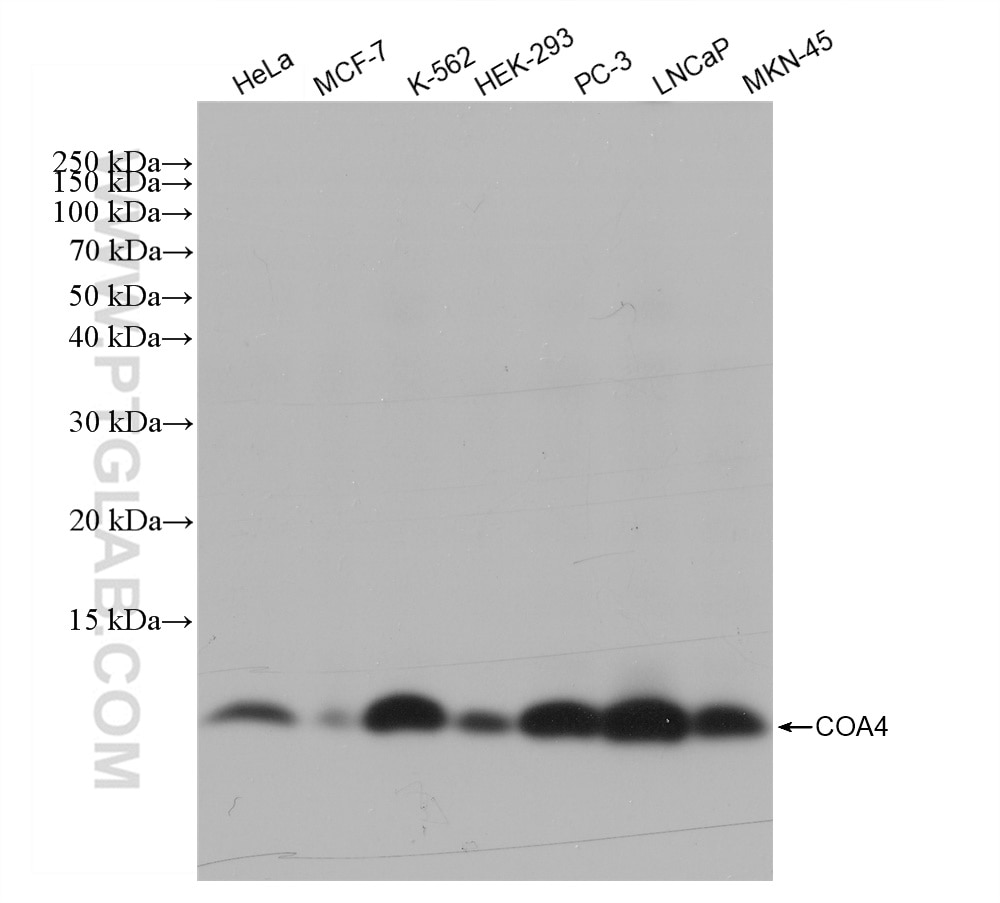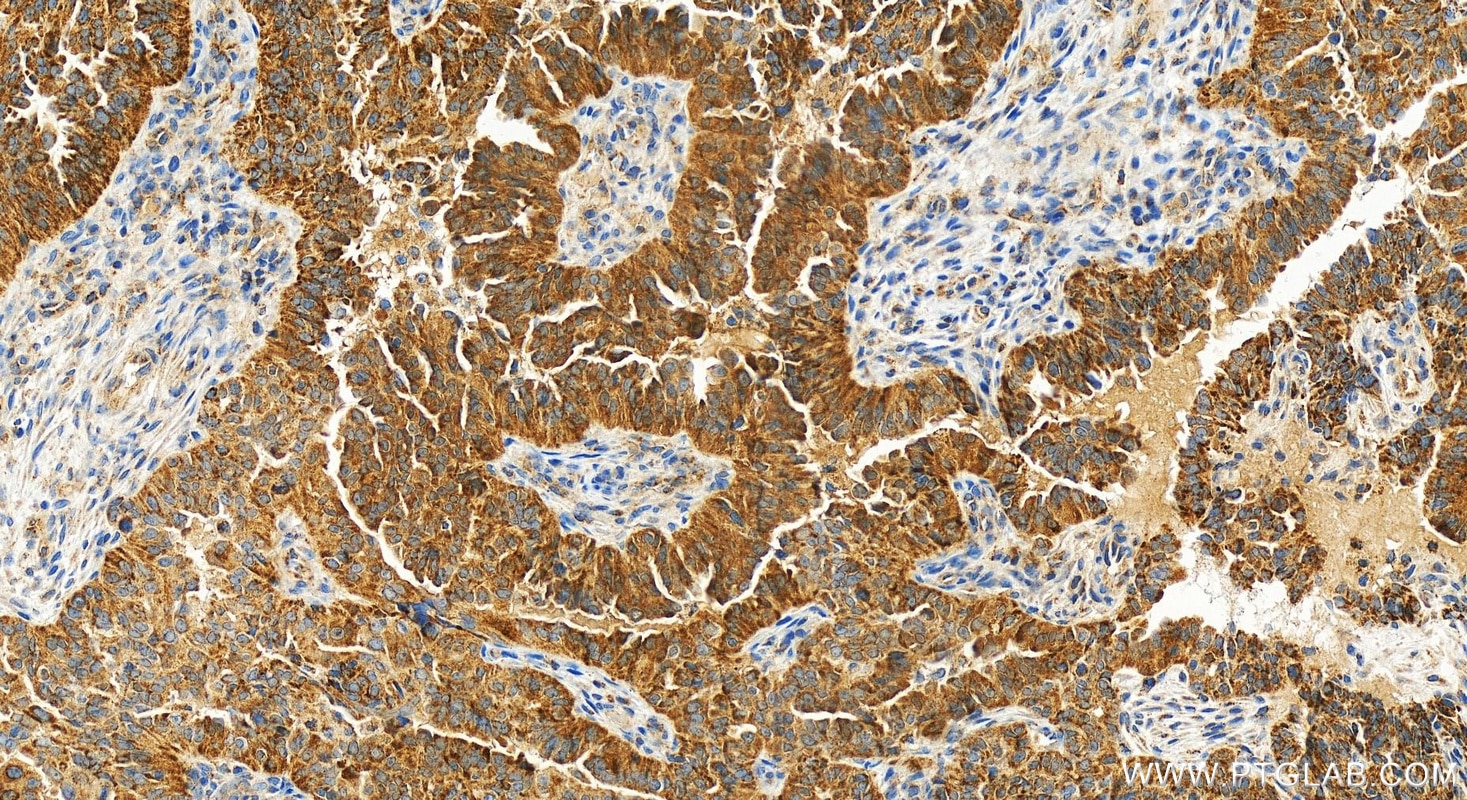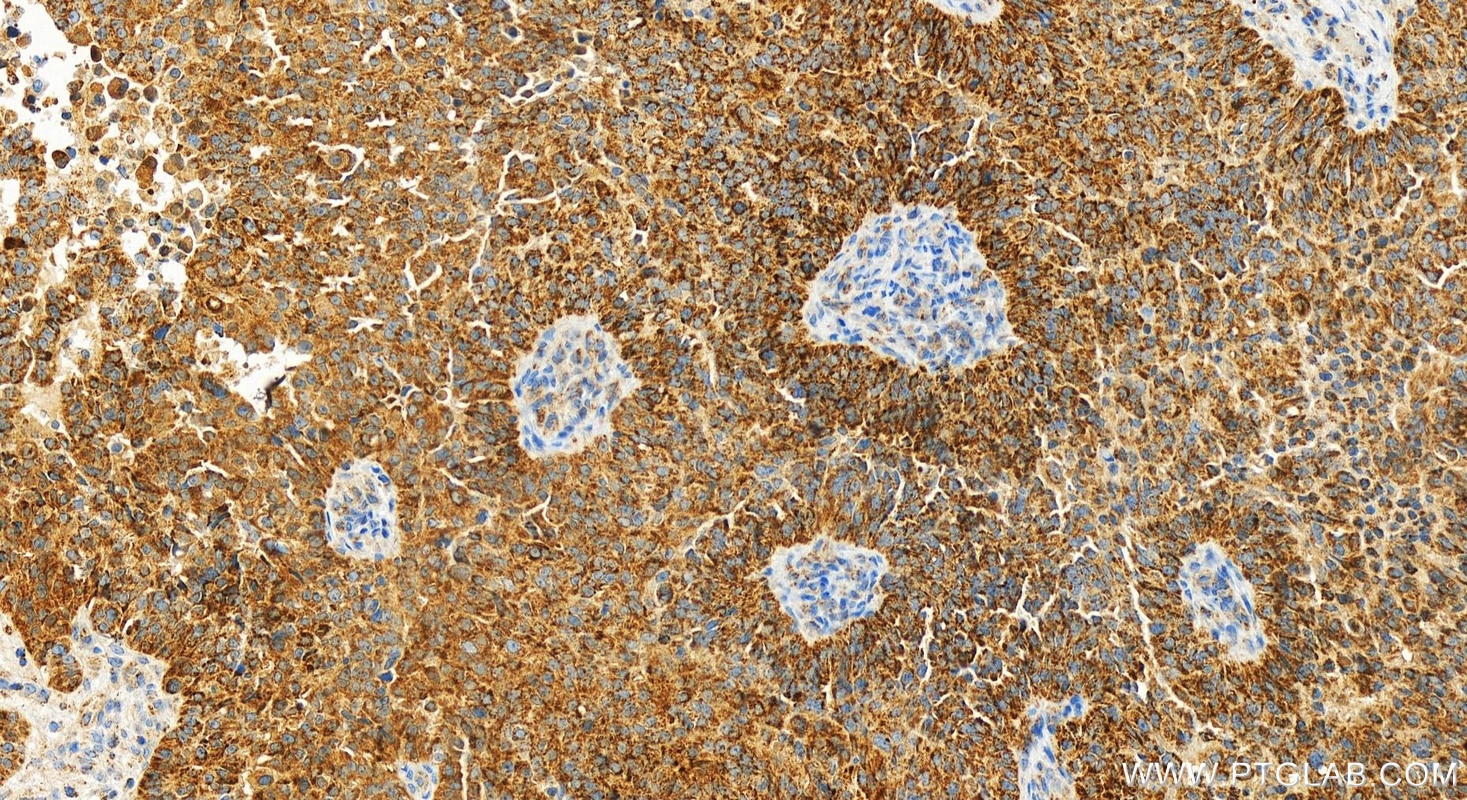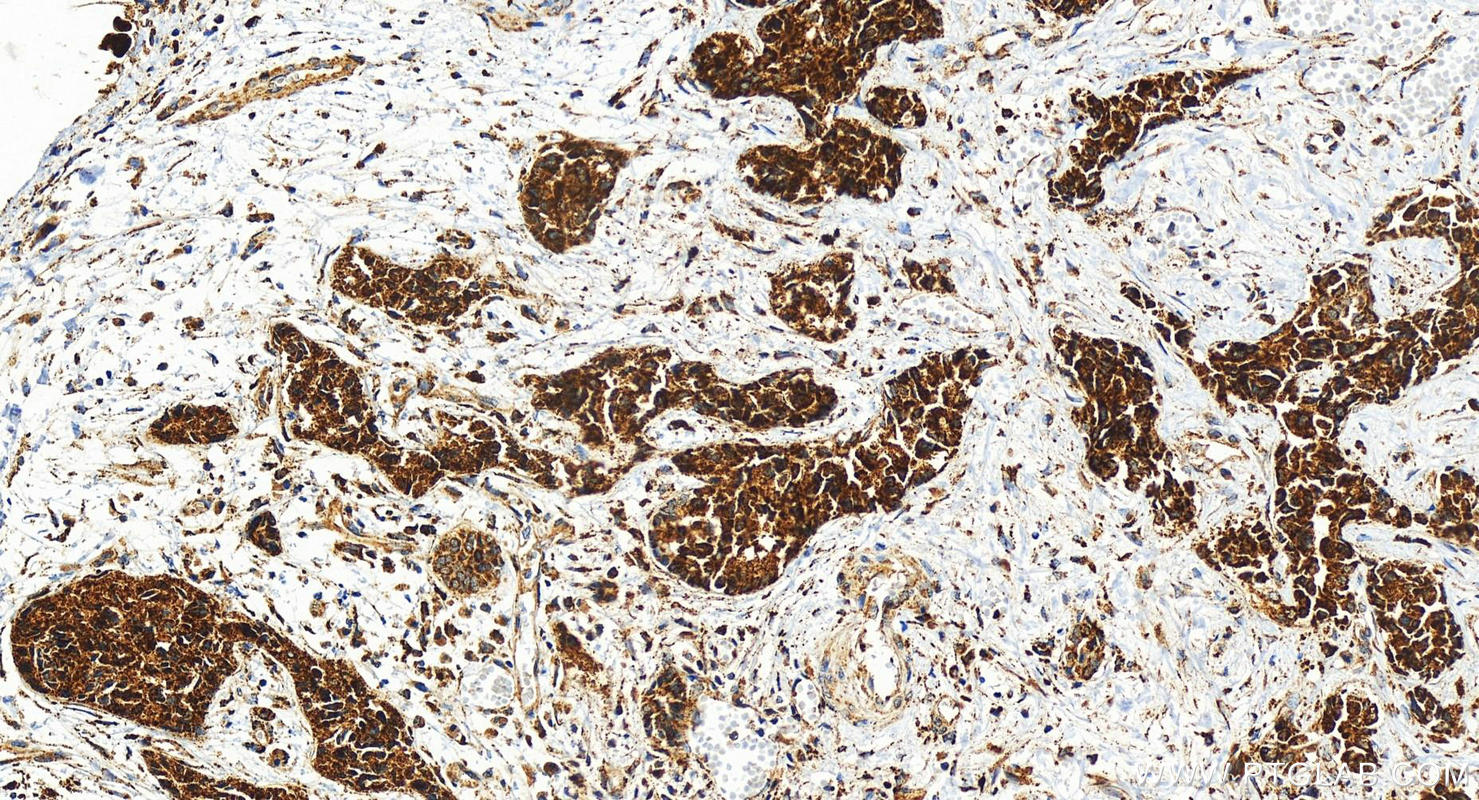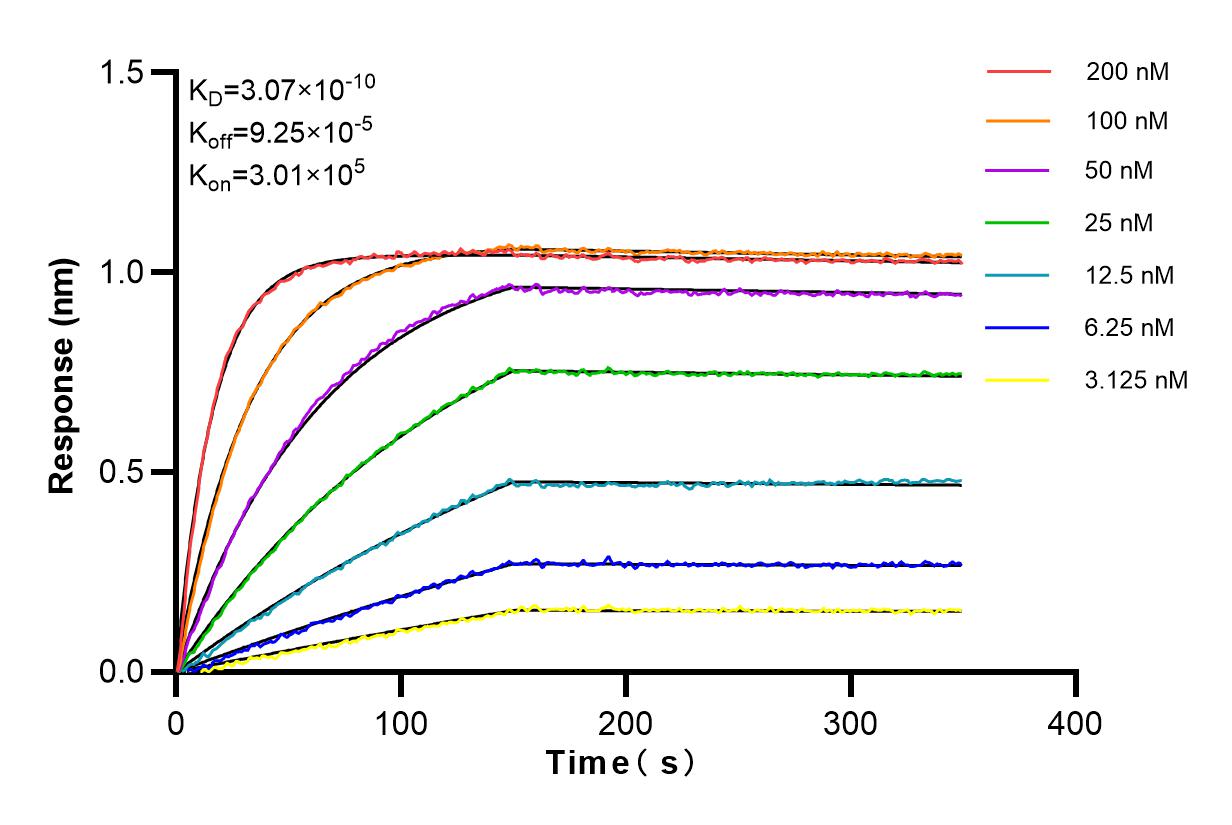Tested Applications
| Positive WB detected in | HeLa cells, MCF-7 cells, K-562 cells, HEK-293 cells, PC-3 cells, LNCaP cells, MKN-45 cells |
| Positive IHC detected in | human intrahepatic cholangiocarcinoma tissue, human ovarian cancer Note: suggested antigen retrieval with TE buffer pH 9.0; (*) Alternatively, antigen retrieval may be performed with citrate buffer pH 6.0 |
Recommended dilution
| Application | Dilution |
|---|---|
| Western Blot (WB) | WB : 1:1000-1:8000 |
| Immunohistochemistry (IHC) | IHC : 1:200-1:800 |
| It is recommended that this reagent should be titrated in each testing system to obtain optimal results. | |
| Sample-dependent, Check data in validation data gallery. | |
Product Information
83326-1-RR targets COA4 in WB, IHC, ELISA applications and shows reactivity with human samples.
| Tested Reactivity | human |
| Host / Isotype | Rabbit / IgG |
| Class | Recombinant |
| Type | Antibody |
| Immunogen | COA4 fusion protein Ag33966 Predict reactive species |
| Full Name | Cytochrome c oxidase assembly factor 4 homolog, mitochondrial |
| Calculated Molecular Weight | 10 kDa |
| Observed Molecular Weight | 10 kDa |
| GenBank Accession Number | NM_016565.2 |
| Gene Symbol | COA4 |
| Gene ID (NCBI) | 51287 |
| RRID | AB_3670991 |
| Conjugate | Unconjugated |
| Form | Liquid |
| Purification Method | Protein A purfication |
| UNIPROT ID | Q9NYJ1-1 |
| Storage Buffer | PBS with 0.02% sodium azide and 50% glycerol, pH 7.3. |
| Storage Conditions | Store at -20°C. Stable for one year after shipment. Aliquoting is unnecessary for -20oC storage. 20ul sizes contain 0.1% BSA. |
Protocols
| Product Specific Protocols | |
|---|---|
| WB protocol for COA4 antibody 83326-1-RR | Download protocol |
| IHC protocol for COA4 antibody 83326-1-RR | Download protocol |
| Standard Protocols | |
|---|---|
| Click here to view our Standard Protocols |
